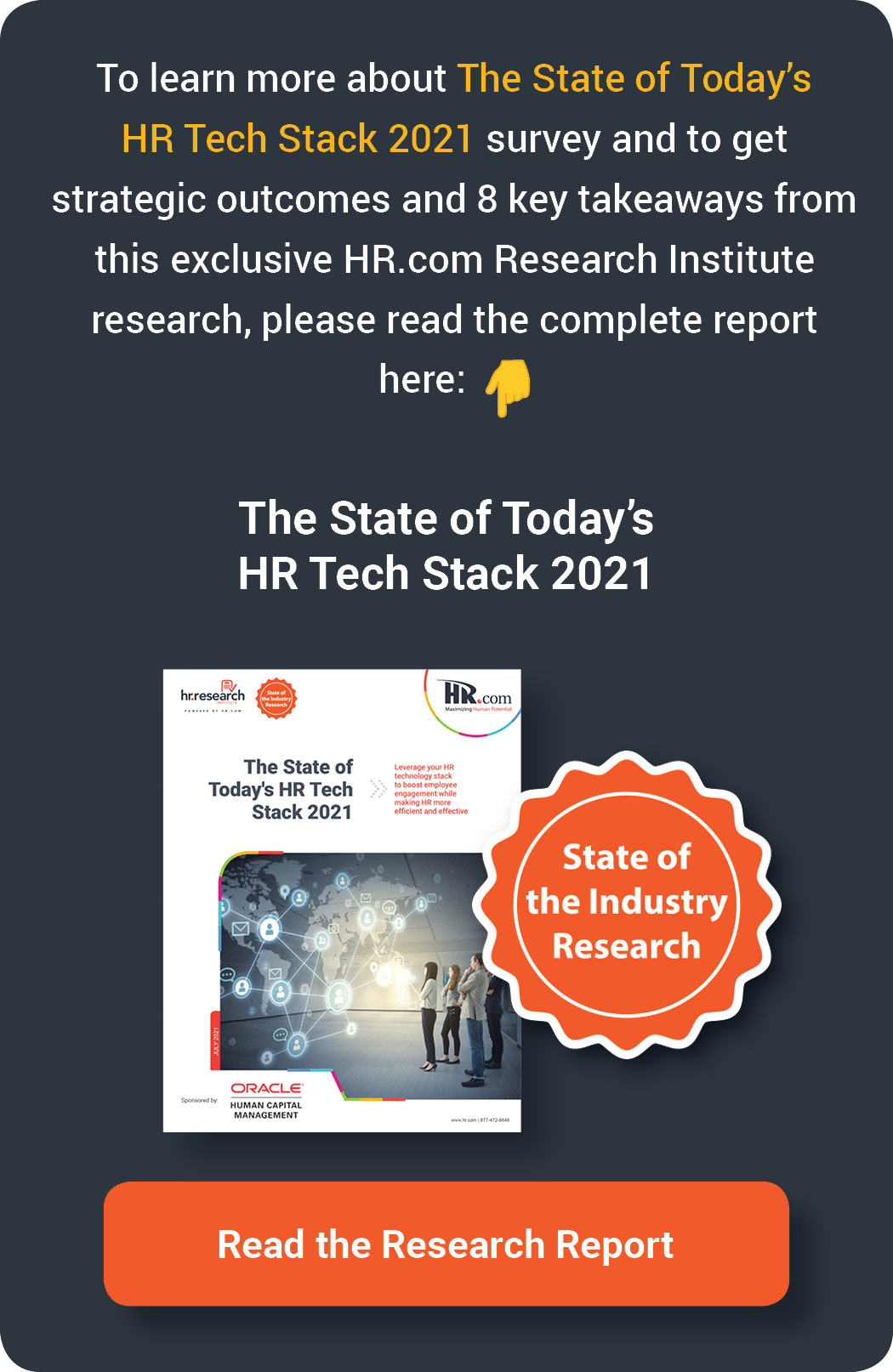Industry Research Summary: The State of Today's HR Tech Stack 2021
Leverage your HR technology stack to boost employee engagement while making HR more efficient and effective
Posted on 07-29-2021, Read Time: Min
Share:

The importance of HR technology has been amplified in the past year due to the Covid-19 pandemic. HR professionals had to adapt quickly, using technology to better serve remote workers and support virtual teams.
In a recent research, conducted by HR.com’s HR Research Institute and Oracle, we explored a variety of topics, including:
- the importance of HR tech stacks to today’s organizations
- the characteristics of current HR tech stacks
- the impact of HR technology on HR productivity and systems
- the most common HR tech stack pain points and problems
- how HR tech stacks are likely to change in the future
- how organizations with higher versus lower quality HR tech stacks differ
Here are the key findings:
Finding #1: Mobile access and self-service are the most widely cited characteristics of today’s HR tech stacks.
Ability to facilitate employee self-service (66%) and mobile access capabilities (65%) are the most common characteristics of current HR tech stacks. Fewer, however, say their HR tech stack automates talent management processes (47%) or integrates talent management
solutions (44%). Only a third say their tech stack is relatively easy to reconfigure. Just 28% say their HR tech stack nurtures and reinforces the desired corporate culture.
solutions (44%). Only a third say their tech stack is relatively easy to reconfigure. Just 28% say their HR tech stack nurtures and reinforces the desired corporate culture.

Finding #2: HR tech stacks are among the top ten priorities for most HR departments and most say their tech stack supports the organization’s business goals and strategies.
Having a strong HR tech stack is among the top three HR priorities in over half (56%) of responding organizations. A further 29% say it is among the top ten HR issues. While almost two-thirds (63%) of respondents say their HR tech stack supports the organization’s business goals and strategies well or extremely well, 37% say their tech stacks support goals and
strategies only moderately well or worse.
strategies only moderately well or worse.
Finding #3: HR tech stack integration is a commonly cited concern, but there are other problems and pain points as well.
Only 21% say their HR tech stack components integrate extremely well with one another. Further, 37% say their HR tech stack systems are not well integrated or cannot be integrated.
One-fifth or fewer say their HR tech stacks provide accurate, actionable, or meaningful metrics/analytics to a very high degree. While integration issues and difficulty getting accurate and useful data are the most common pain points or problem. Other issues include:
One-fifth or fewer say their HR tech stacks provide accurate, actionable, or meaningful metrics/analytics to a very high degree. While integration issues and difficulty getting accurate and useful data are the most common pain points or problem. Other issues include:
- not enough of solutions needed
- not using all the stack’s capabilities
- systems do not allow enough customization
- not enough in-house technical expertise
Error: No such template "/CustomCode/topleader/category"!


